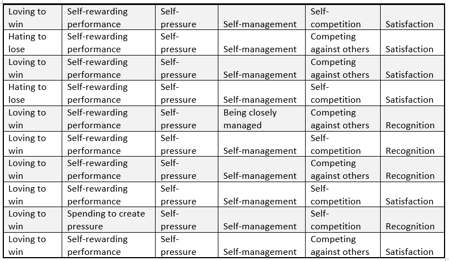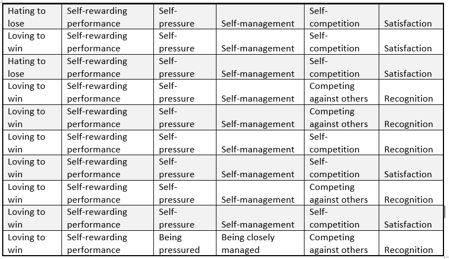Goal setting and effectively motivating salespeople by identifying what's important to them is one of the primary focuses in our Sales Management training.
In this blog, we discuss the several steps a sales manager can take to establish a motivating, inspiring environment for their people.

Goal Setting & Motivation in Sales
When asked, most sales managers say that one of their greatest challenges is their ability to motivate and set goals for their salespeople. If a sales manager can figure out what makes his people “tick”, he can better help them hit their goal numbers. Sales motivation seems like hard work because salespeople often value different things. There are, however, several steps a sales manager can take to establish a motivating environment.
How to Keep Your Sales Team Motivated
The first step to keeping your sales team motivated is to recognize that motivation is an “inside-out’ job. When the topic of motivation is discussed, we typically think about incentive compensation, sales contests, and recognition programs. All of these certainly encourage sales teams to focus on generating new business because these are rewards. However, you will gain true engagement and enthusiasm if you create an everyday environment that encourages each individual to identify and visualize his own internal motivation.
Salespeople do not care about corporate shareholder value unless they are shareholders themselves. What they care about is food, shelter, clothing, recognition, paying for college education or wedding, buying a vacation home, etc. These are personal desires and make up the vast majority of things that are important to people. So the solution is to create an environment where this internal motivation can take place. See The Dream Manager book by Michael Kelly.
How to Set Goals for Sales People
The next step to goal setting and motivation is to help your salespeople identify what is important to them. Make the effort to set up time off-site that is dedicated to planning and spend time developing each individual’s dreams and goals. This is time that you and they will spend ON your business instead of in it.
How to Create a Process for Your Salespeople
Create a process where people can establish personal goals because this is where true motivation, passion, and desire are born. Hence, it is from this process that each salesperson’s business plan must evolve.
You might position this process as though you are the coach and the salespeople are players on a competitive baseball team. Each of you has a part to play so that the whole team wins. When someone objects to the dream building exercises by saying something like “You are just going to provide a goal for me anyway so why do I have to do this?”, tell him that, as with a baseball team, each player must excel at his job so that the team can win and go to play-offs.
Salespeople will understand this. If someone does not get this, he or she may not be suited for selling. Selling requires desire, commitment, and a need to win. Selling is a competition.
Create an environment where people get a chance to unplug, sit down and outline their goals and dreams; a time when both of you can establish timeframes and attach financial values to these items. Once you have attached financial values, you will know what level of prospecting and selling activity is necessary for each salesperson.
Reward yourself and your people when they have a success. At our company, we hung a big bell in the hallway that we ring every time we bring in a new relationship. It is LOUD and that is just the way we want it! As your people go through this process and identify their goals; as you sit down and establish your own personal goals, be sure to specify how you will reward and recognize your people as each of them achieve these goals.










